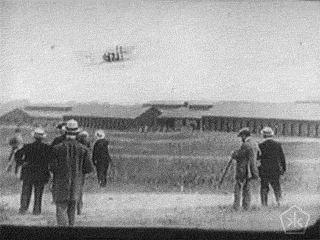The Evolution of SEO
Today, we’re stepping into the time machine to journey through the captivating world of SEO. Over the years, the art and science of Search Engine Optimization (SEO) evolved in response to technological innovations, user behavior, and, of course, the ever-mysterious search engine algorithms.
Let’s get started!
The Early Days: 1990s

What we picture…
– 1990 – Archie: Often considered the first search engine, Archie allowed users to search for FTP files. This was our first hint at the importance of indexing digital content.
– 1994 – Yahoo! Directory: Yahoo! Directory was launched and websites were listed manually after a review. This was the first foray into understanding the importance of structured listings.
– 1996 – Backrub (pre-Google): Created by Larry Page and Sergey Brin, Backrub evaluated the strength of websites based on their inbound links. This concept later evolved into Google, and the importance of backlinking was born.
– 1997 – SEO as a term: The term “Search Engine Optimization” is first used around this time. The gold rush to rank at the top of search results began!
Entering the 2000s: Rise of Algorithms
– 2000 – Google AdWords: Now known as Google Ads, this was a game-changer. It showed the commercial potential of search rankings.
– 2003 – Google’s Florida Update: This was one of the first major algorithm shifts. It aimed to reduce keyword stuffing, emphasizing the importance of content quality.
– 2005 – Google Analytics & NoFollow Attribute: With the launch of Google Analytics, data-driven SEO strategies became a reality. As a result, the NoFollow attribute helped webmasters control link equity, further refining the backlinking process.
– 2009 – Real-time search results: Google started indexing content in real-time, making timely and relevant content more valuable.
2010s: Mobile, Local & Quality Content

This is not what we think of for mobile responsiveness
– 2011 – Google’s Panda Update: This was a significant jolt to the SEO world. Panda focused on quality content and penalized thin content, content farms, and sites with high ad-to-content ratios.
– 2012 – Google’s Penguin Update: Targeting spammy link-building tactics, Penguin revolutionized how we thought about backlinks.
– 2015 – Mobilegeddon: Google rolled out this update, giving preference to mobile-friendly sites. Mobile optimization became a must!
– 2016 – Google’s Possum Update: This changed the way we displayed local results and emphasized the importance of local SEO.
– 2018 – Google’s Medic Update: Focusing on “Your Money Your Life” (YMYL) pages, this update emphasized trustworthiness, expertise, and authoritativeness in content.
2020s: User Experience and Beyond
– 2020 – Google’s Core Web Vitals: Google emphasized page experience metrics, making website performance and user experience crucial ranking factors. We discussed this at the time.
– 2021 – Google’s MUM (Multitask Unified Model): This brought a deeper understanding of content, making nuanced search queries easier to address.
What’s next in the world of SEO? Well, it’s hard to say for certain. However, we know that the field is dynamic, and there’s always something new around the corner. Even if you’re an old hat in the world of SEO, or just getting started, staying informed about these shifts is paramount.
As search engines strive to offer users the most relevant and high-quality results, SEO professionals must continually adapt, learn, and grow. We’ve been building sites for our clients since the early 2000s, and have been working on SEO for almost as long as we’ve been building sites! Strottner Designs has been in the industry for most of the history discussed above, and we know how to maximize the SEO strategy for small, medium and large businesses. Email us at support@strottner.com to learn more, receive a free website audit, or to take advantage of our SEOctober opportunity!








